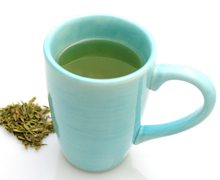
If you enjoy drinking tea then this news will likely bring a smile to your face. Researchers have concluded people who drink tea at least three times a week live longer and healthier lives than those who drink less or not at all.
Chinese scientists analyzed data from more than 100,000 study participants in the China-PAR project and published their findings in the European Journal of Preventive Cardiology. The study subjects had no history of heart attack, stroke or cancer and were divided into what they considered habitual tea drinkers, those who consumed tea three or more times a week, and those who never drank tea or drank it less than three times per week. They were tracked for a median of 7.3 years.
"Habitual tea consumption is associated with lower risks of cardiovascular disease and all-cause death," said Dr. Xinyan Wang from the Chinese Academy of Medical Sciences. "The favorable health effects are the most robust for green tea and for long-term habitual tea drinkers."
Researchers found habitual tea consumption was associated with a 20 percent lower risk of heart disease and stroke, a 22 percent lower risk of fatal heart disease and stroke and a 15 percent decrease in all-cause mortality.
Researchers estimate that would translate to a 50-year-old habitual tea drinker living an average of 1.26 years longer and delaying the development or coronary heart disease or stoke by 1.41 years.
"The protective effects of tea were most pronounced among the consistent habitual tea drinking group,” said Dr. Dongfeng Gu from the Chinese Academy of Medical Sciences. “Mechanism studies have suggested that the main bioactive compounds in tea, namely polyphenols, are not stored in the body long-term. Thus, frequent tea intake over an extended period may be necessary for the cardioprotective effect."
Scientists broke down the data and found most of the health benefits could be attributed to drinking green tea rather than black tea. They theorize it’s because green tea is a rich source of polyphenols, which have been shown to have a protective effect against heart disease. Black tea is fully fermented and it is believed the antioxidant effects are lost when the polyphenols become oxidized. Additionally, black tea is normally served with milk and researchers think that may counteract some of the favorable effects on vascular function.
"In our study population, 49% of habitual tea drinkers consumed green tea most frequently, while only 8% preferred black tea,” Dr. Gu said. “The small proportion of habitual black tea drinkers might make it more difficult to observe robust associations, but our findings hint at a differential effect between tea types."
The study authors say the next step is to conduct randomized trials to confirm the findings before any dietary guidelines or lifestyle recommendations can be prescribed.
Click here to read more in the European Journal of Preventive Cardiology.
